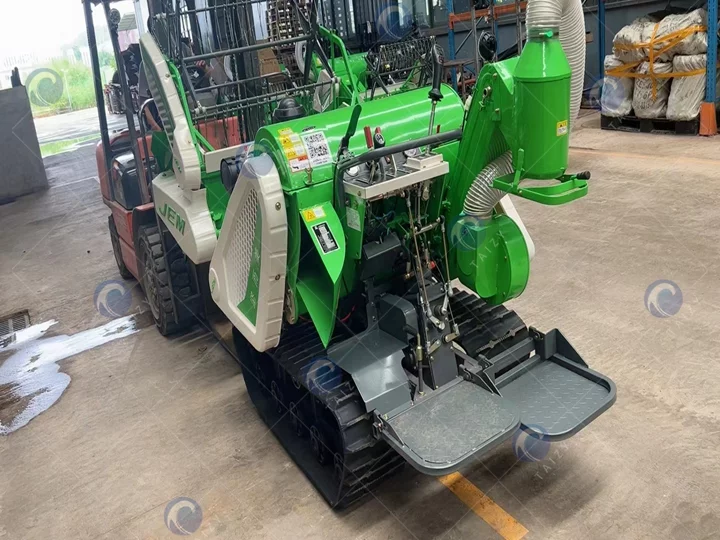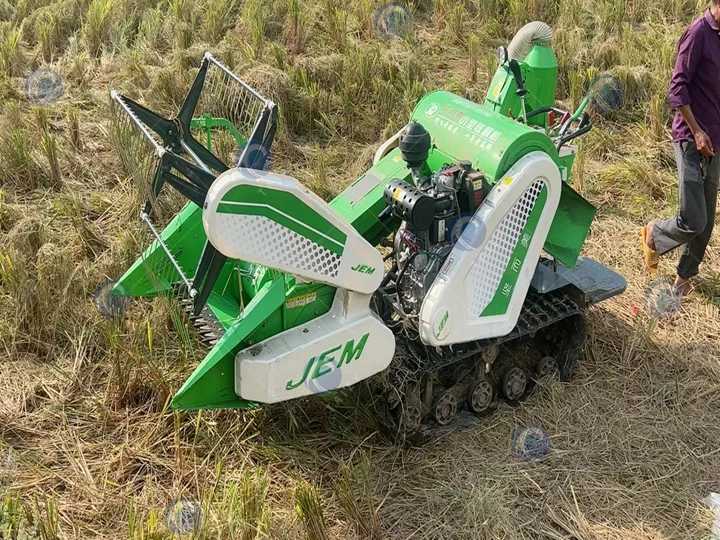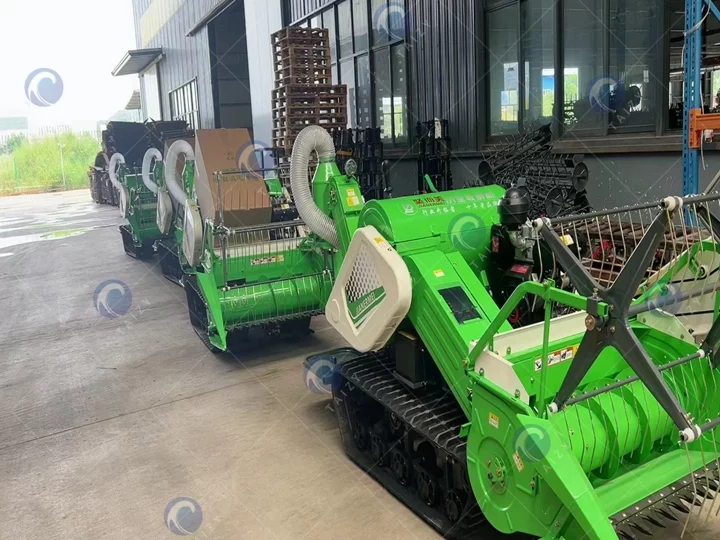Colheitadeira de arroz e trigo exportada para a Nigéria
Boas notícias! Nosso colheitadeira de arroz e trigo foi enviado para um Instituto de Pesquisa Agrícola da Nigéria.
É uma importante instituição de investigação agrícola sob o governo nigeriano, dedicada a impulsionar a inovação e o desenvolvimento sustentável no sector agrícola. Um dos principais objectivos da NARI é aumentar o rendimento das principais culturas básicas, como o arroz e o trigo, para garantir a segurança alimentar e melhorar os meios de subsistência dos agricultores.

Desafios e Objetivos
Face às complexas e diversas condições climáticas e de solo da Nigéria, a NARI tem procurado activamente soluções para os desafios de melhoria dos rendimentos do arroz e do trigo.
Eles precisavam urgentemente de máquinas de colheita versáteis e eficientes, capazes de se adaptar às diversas necessidades agrícolas e, ao mesmo tempo, fornecer suporte de dados confiáveis para seus projetos de pesquisa.
Solução fornecido para nosso cliente na Nigéria
A NARI optou pela Ceifeira-debulhadora de Arroz e Trigo da nossa empresa, selecionando-a pela sua tecnologia avançada e alta adaptabilidade.
As configurações ajustáveis exclusivas da máquina tornam-na adequada para acomodar as diversas variedades de arroz e trigo na Nigéria, demonstrando excelente desempenho em diferentes ambientes de campo.

Vantagens e aplicações
- Adaptabilidade: O design da máquina leva em consideração as diversas condições climáticas e de solo da Nigéria, garantindo excelente desempenho em diferentes regiões e estações.
- Alta eficiência: Com tecnologia avançada de corte e separação, a máquina aumenta a eficiência da colheita de arroz e trigo, garantindo altos rendimentos e colheitas de qualidade.
- Recursos de automação: Os recursos de automação reduzem significativamente a dependência do trabalho manual, aumentando a eficiência operacional e proporcionando aos agricultores mais tempo e recursos de mão de obra.
Resultados e perspectivas futuras
A aplicação bem-sucedida da colheitadeira de arroz e trigo injeta nova vitalidade nos projetos de pesquisa do NARI. Ao obter dados detalhados das culturas, os investigadores obtêm conhecimentos mais profundos sobre o desempenho de diferentes variedades e condições de cultivo de arroz e trigo.
Estes dados permitirão à NARI formular estratégias de gestão agrícola mais eficazes, promovendo o desenvolvimento sustentável na agricultura nigeriana, aumentando o rendimento das colheitas e melhorando a prosperidade económica dos agricultores. Esta aplicação bem-sucedida também estabelece uma base sólida para a futura modernização da agricultura na Nigéria.
